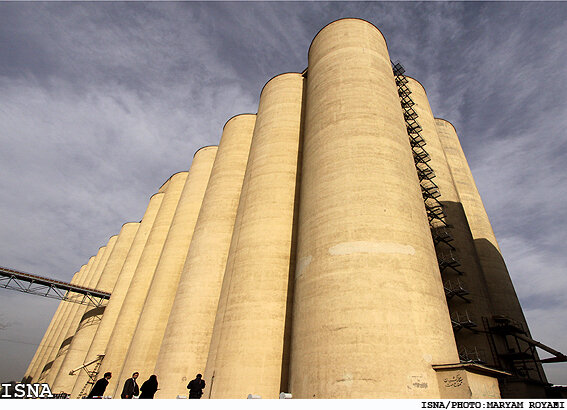Mashhad’s old silo registered as national heritage site

TEHRAN - Mashhad’s old silo, a significant symbol of Iran’s industrial history, has been officially added to the list of National Industrial Heritage sites.
Covering approximately nine hectares, the silo complex has been in operation for over 80 years, expanding over time to meet the then needs, said Mahmoud Toghraei, who presides over the Historical Monuments Registration Department at the Cultural Heritage, Tourism, and Handicrafts Department of Khorasan-Razavi province.
The old silo has recently been registered under number 34177 in the list of National Industrial Heritage sites, the official said.
The oldest part of the complex, which dates back to 1939, includes a 16,000-ton grain storage silo along with administrative and support buildings. This part of the site features essential structures such as the unloading station for wheat trucks, a large concrete grain reservoir, and power generation facilities, Toghraei explained.
The original unloading building, with 10 unloading bays, is where trucks once deposited wheat onto large concrete funnels. Beneath this area is a tunnel-like space equipped with a conveyor system that transported wheat to the massive 16,000-ton concrete silo. This structure, towering at 52 meters in height, is 160 meters long and 40 meters wide, consisting of 11 cylindrical storage units arranged in three rows.
Toghraei emphasized the historical importance of the silo, highlighting its role during Iran’s transition to modernity in the early 20th century. During this period, urbanization and population growth spurred the need for advanced technologies to ensure public health and food security. The collaboration between Iran and Germany at the time brought European, particularly German, technology to the country, which was instrumental in the construction and operation of the Mashhad’s silo.
Despite being over eight decades old, the original machinery, conveyor belts, power systems, and motors are still in use today, a testament to the exceptional quality of the silo’s design, construction, and maintenance. The structure, made from reinforced concrete, was built using wooden molds, a technique common at the time.
Toghraei further noted that the Mashhad’s old silo stands as a unique example of Iran’s industrial heritage, showcasing the precision of long-term planning, high-quality construction by German engineers, and continued technical upkeep by local experts.
Even after 80 years of continuous operation, it remains a vital part of Iran’s industrial landscape.
AM
